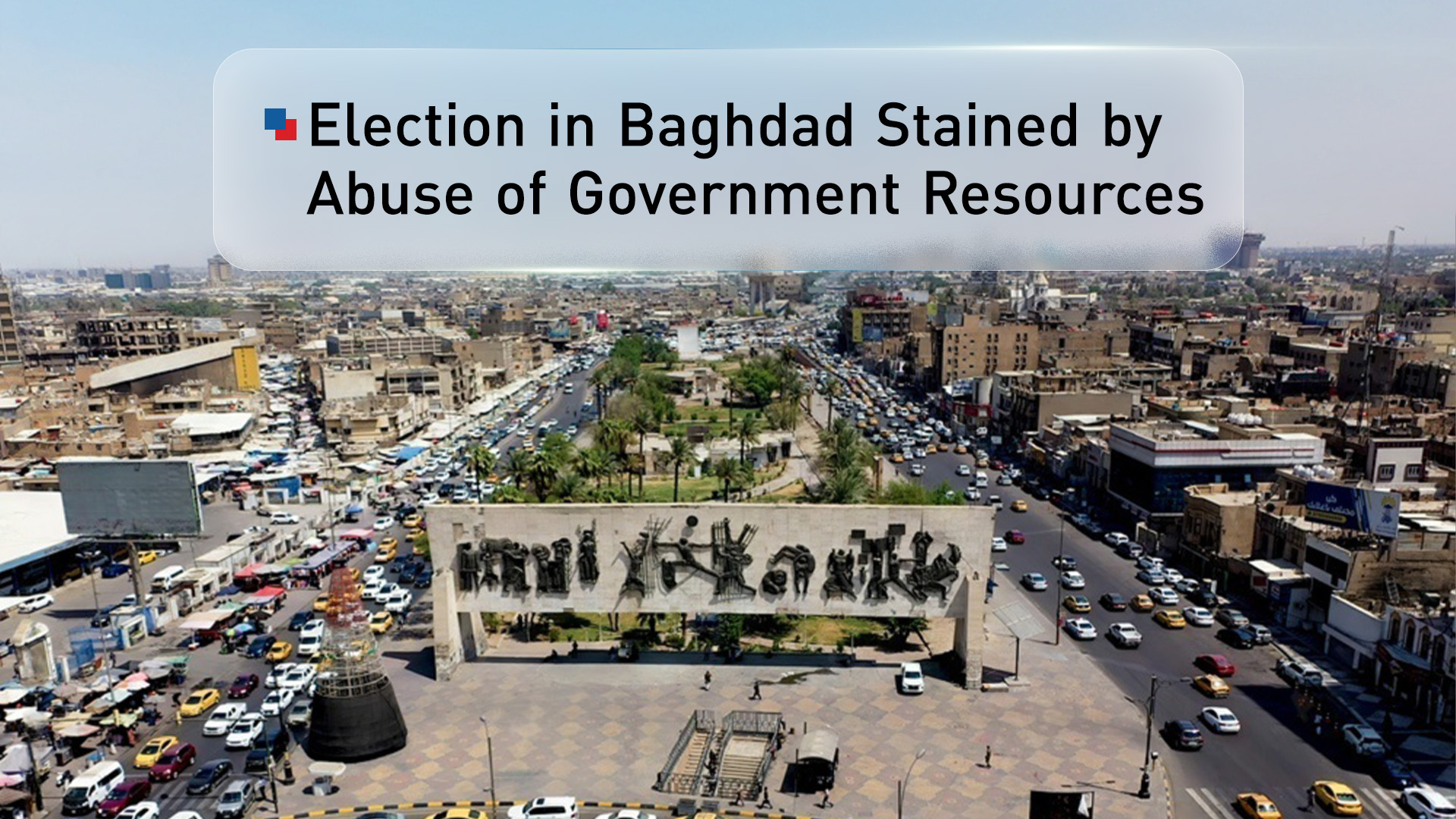Baghdad Election Campaign Marred by Violations as Candidates Misuse Government Institutions
Baghdad's election campaign is plagued by violations, with candidates using government buildings for campaigning and ignoring IHEC fines for early posting.

ERBIL (Kurdistan24) - Despite the official campaign period for the Iraqi Parliament elections beginning at midnight on Friday, the political landscape in Baghdad is already overshadowed by numerous violations, with candidates facing accusations of misusing public assets and flouting electoral guidelines.
According to information from the Independent High Electoral Commission (IHEC) and election monitoring organizations, the capital city has recorded the highest number of campaign violations across Iraq, a troubling trend that points to an unequal playing field from the outset.
Furthermore, Kurdistan24's correspondent in Baghdad, Shvan Jabari, reported that the abuse of public trust has been blatant, with candidates of major political parties using government buildings, institutions, and public places to hang their campaign pictures.
The start of the official campaign, scheduled to run until the morning of Saturday, November 8, marks a critical period leading up to the general election on November 11. Across Iraq and the Kurdistan Region, 7,768 candidates, representing 38 political parties, 31 coalitions, and 75 individual lists, are vying for the support of the more than 21.4 million eligible voters.
However, in Baghdad, the campaign atmosphere has been characterized by a struggle between the rule of law and the influence of powerful political actors. The problem of early campaigning has been particularly acute, with pictures of political leaders, often referred to as "flexes," having been conspicuously displayed for up to 15 days before the official start date.
This early visual saturation, often without the legally required names or candidacy numbers, was a deliberate tactic to bypass campaign rules. The magnitude of this early push was enormous, with one Iraqi Member of Parliament having previously told Kurdistan24 that only the pictures of political leaders printed in Baghdad were valued at an estimated five billion dinars.
This lavish spending and early start immediately prompted dissatisfaction from smaller political parties, who argued that this gave the major players a significant and unfair advantage. Their complaints were duly filed with the High Electoral Commission.
The IHEC responded to these widespread complaints by taking punitive action, publicly revealing the names of several political leaders and candidates who had failed to adhere to the commission's guidelines. Three days prior to the official campaign launch, the commission announced fines ranging from one million to 10 million Iraqi dinars for various violations.
Prominent figures fined included Mohammed Shia Sudani, Mohammed al-Halbousi, the Iraqi Minister of Defense, Muthanna al-Samarrai, Khamis al-Khanjar, and several other leaders from both Sunni and Shiite parties.
However, as of the official campaign launch, Kurdistan24's correspondent Shvan Jabari noted that this action did not compel the leaders to remove their unauthorized pictures from the streets, underscoring the challenge the IHEC faces in enforcing its mandates against well-resourced and entrenched political power.
Beyond the issue of early campaigning, the reported misuse of state assets represents a severe ethical and legal breach. Shvan Jabari explicitly stated that candidates of the parties "have used government buildings and institutions and public places for election campaigning and have hung pictures in them."
This practice not only violates the spirit of a fair electoral contest but also directly contravenes the principle of separating state apparatus from party politics, a fundamental requirement for a healthy democratic system.
In a curious counter-violation, the correspondent also reported that a campaign has started in the popular neighborhoods of Baghdad to "remove and tear down the posters of the candidates." The IHEC has indicated that this act of removing or vandalizing campaign materials, regardless of its motivation, is also considered a violation of the election guidelines.
This suggests a growing public frustration with the political advertising clutter, which in turn leads to unauthorized public clean-up campaigns that themselves become subject to the electoral commission’s rules.
The electoral process, which is taking place under a new system—a single non-transferable vote system replacing the previous proportional representation model—is a critical juncture for Iraq. Held every four years since 2005, the parliamentary elections are the cornerstone of the country’s democratic system, electing the 329 members of the Council of Representatives.
The outcome of this election will be key to forming the next federal government and shaping the nation's response to ongoing domestic challenges, which include economic reforms, the provision of services, and the management of the complex relationship between Baghdad and the Kurdistan Regional Government.
The fact that the process is beginning with such widespread non-compliance in the capital, despite the IHEC's efforts and the call from Kurdistan Region President Nechirvan Barzani for a "respectfully and constructively" conducted campaign, suggests that the struggle for transparent and ethical governance remains an uphill battle in Iraq's core political center.